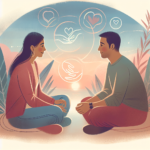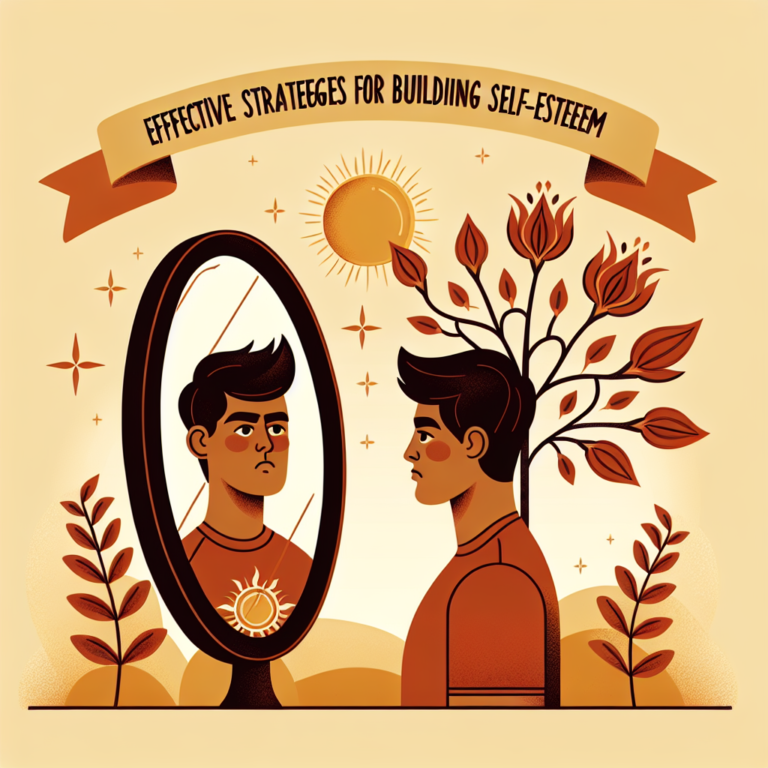
The Cost of Solitude: Unpacking the Psychological Effects of Prolonged Isolation
Introduction
In a world more connected than ever, the irony of isolation looms larger than most of us realize. The cost of solitude, particularly in our modern context, reveals a multifaceted psychological landscape that warrants deeper exploration. Whether it’s self-imposed or circumstantial, prolonged isolation can have profound implications on mental health, well-being, and even physical health. This article seeks to unpack these effects, recognizing that while solitude can nurture creativity and self-reflection, it can also lead to detrimental psychological repercussions.
As we delve into the cost of solitude through case studies, insights from psychological research, and real-world applications, we aim to shed light on its complexity and equip readers with actionable knowledge to navigate these murky waters.
Understanding Prolonged Isolation
Isolation can be broadly defined as the state of being separated from others, whether physically or emotionally. It can result from various factors: living alone, social anxiety, or even global events that limit social interactions, such as the COVID-19 pandemic.
The Psychological Dimensions of Isolation
Prolonged loneliness is more than just an unpleasant feeling; it’s a catalyst for various psychological issues. Research indicates that chronic isolation can lead to:
- Depression: Studies show that socially isolated individuals are more likely to experience depressive symptoms.
- Anxiety: The fear of social situations can intensify when one is isolated, leading to greater anxiety.
- Cognitive Decline: Loneliness has been linked to cognitive dysfunction and a heightened risk of conditions like dementia.
An Individual’s Journey into Isolation
To understand the psychological effects more vividly, let’s consider a case study of Jessica, a 32-year-old graphic designer who worked remotely. When the pandemic struck, her world shrank. Initially, she thrived in solitude, enjoying the quiet time to focus on personal projects. However, months turned into years, and the cost of solitude began to manifest. Jessica began to experience symptoms of anxiety and depression, leading her to seek therapy.
Analysis of Jessica’s Case
Jessica’s journey illustrates a crucial point: while solitude can have its benefits, the psychological toll of prolonged isolation often outweighs these. The balance is delicate, a theme we will further explore in subsequent sections.
The Emotional and Mental Health Impact
The emotional repercussions of isolation are intertwined with our mental health. Below, we explore various dimensions of this impact.
The Social Isolation Paradox
In an age where digital connections seem to flourish, social isolation can paradoxically increase. Virtual interactions don’t satisfy our innate need for genuine human connection. Studies have shown that individuals relying solely on digital forms of communication report higher levels of loneliness.
Emotional Consequences of Prolonged Isolation
Increased Feelings of Worthlessness: Extended periods without meaningful social engagement can lead individuals to question their self-worth.
Heightened Vulnerabilities: Isolation can exacerbate existing vulnerabilities, resulting in elevated levels of anxiety and stress.
- Changes in Brain Chemistry: Lack of social interaction can reduce the production of neurotransmitters like oxytocin, which are essential for emotional regulation.
Case Study: Tom’s Journey from Solitude to Connection
Tom, a 45-year-old man, had spent the last decade working from home. Initially, he found it liberating. However, after years of minimal social contact, he experienced severe depression and had to seek help.
Tom’s experience asserts the idea that the cost of solitude can creep up unexpectedly. His subsequent therapy highlighted the critical need for human interaction and community.
Table: Symptoms Related to Prolonged Isolation
| Symptom | Description |
|---|---|
| Depression | Feelings of sadness, hopelessness |
| Anxiety | Increased worry, panic attacks |
| Cognitive Decline | Memory lapses, poor decision-making |
| Social Withdrawal | Reluctance to engage in social activities |
| Changes in Sleep | Insomnia or excessive sleepiness |
The Physiological Impact of Loneliness
Interestingly, the effects of isolation go beyond the mind and deeply impact our physical health too.
The Connection Between Mind and Body
Research by scientists shows a significant link between feelings of loneliness and numerous health issues, including cardiovascular diseases and weakened immune systems. The chronic stress associated with isolation triggers an inflammatory response in the body, leading to various health complications.
Case Study: Mary – The Somatic Effects of Loneliness
Mary, aged 60, had been living alone for more than five years. After facing significant upheaval in her family life, she withdrew from social interactions. The result? She began experiencing debilitating chronic pain and frequent illnesses.
Analysis of Mary’s Health Journey
Mary’s case exemplifies the intersection of emotional and physical well-being, underscoring that the cost of solitude extends far beyond emotional distress, reaching into physical health complications.
Chart: Loneliness and Its Physiological Effects
| Physical Health Issue | Description |
|---|---|
| Heart Disease | Increased risk due to chronic stress |
| Weakened Immune System | Higher susceptibility to infections |
| High Blood Pressure | Linked to stress hormones |
| Chronic Pain | Psychological distress manifests as pain |
The Paradoxical Nature of Solitude
While isolation can often lead to detrimental outcomes, there exists a paradox in solitude. Some individuals find power and creativity in solitude. Understanding this duality is essential for anyone grappling with isolation.
Positive Outcomes of Solitude
- Self-Discovery: Solitude can facilitate reflection and self-awareness.
- Enhanced Creativity: Many artists and writers report higher creativity when isolated.
- Restoration: Solitude can serve as a time to recuperate mentally.
Case Study: Leo – The Creative Solitary
Leo, a poet, thrived in his solitude, producing work that resonated with deep emotion and insight. Through his experience, he found that being alone helped him delve into his psyche and foster creativity.
Analysis of Leo’s Experience
Leo’s experience reveals the nuanced relationship between solitude and creativity. While not everyone experiences the benefits Leo did, his story serves to illustrate the importance of intentional solitude, which stands in contrast to the isolating loneliness that Jessica or Tom faced.
Navigating the Spectrum of Solitude Effectively
Given the complexities surrounding isolation, navigating this spectrum can yield powerful results.
Strategies for Healthy Solitude
Set Intentions: Whether seeking solitude for creativity or rest, setting clear intentions can help shape the experience positively.
Embrace Digital Connections: While they can’t replace facetime, digital communications can still foster connections and reduce feelings of loneliness.
- Engage in Community: Encourage small interactions, prioritizing community involvement over complete isolation.
Conclusion: Finding Balance
The exploration of the cost of solitude exposes the intricate web of psychological effects stemming from both isolation and intentional solitude. The insights gathered through cases like Jessica’s, Tom’s, and Leo’s underline a vital truth: while prolonged isolation can unleash a host of detrimental effects, appropriate solitude can also nourish the soul.
As we continue to navigate our increasingly solitary moments in today’s world, it’s essential to recognize the importance of connection—both with ourselves and with others.
FAQs Section
What defines prolonged isolation?
Prolonged isolation generally refers to extended periods (months or years) of limited social contact, often leading to emotional distress.Can solitude be beneficial?
Yes, when approached intentionally, solitude can foster creativity and self-discovery.What are the first signs of the psychological effects of isolation?
The early signs may include increased sadness, anxiety, or withdrawal from previously enjoyed activities.How can I reduce feelings of loneliness?
Engaging in regular social interactions, joining clubs or classes, or reaching out to friends can reduce loneliness.- Is isolation a widespread issue in today’s society?
Yes, particularly in the wake of global events like the COVID-19 pandemic, many people are experiencing heightened levels of isolation.
In sum, understanding the cost of solitude is essential for fostering healthier mental and emotional landscapes as we navigate the complexities of social engagement in the modern world.

















